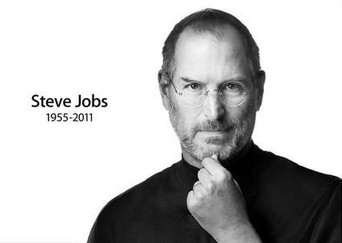When Joanne found out that her baby had been placed with a couple who had not even graduated from high school, she refused to sign the adoption papers. The standoff lasted weeks, even after the baby had settled into the Jobs household. Eventually Joanne relented, with the stipulation that the couple promise—indeed sign a pledge—to fund a savings account to pay for the boy’s college education.
但是,乔安妮关于孩子的养父母必须是大学毕业生的要求并没有改变。当她发现这对夫妇甚至连髙中都没有念完时,她拒绝在领养文件上签字。僵局持续了数周,即便史蒂夫已经在乔布斯家安定下来了。最终,乔安妮放宽了要求:乔布斯夫妇必须承诺——在一份保证书上签字——设立专款,送这个孩子上大学。
There was another reason that Joanne was balky about signing the adoption papers. Her father was about to die, and she planned to marry Jandali soon after. She held out hope, she would later tell family members, sometimes tearing up at the memory, that once they were married, she could get their baby boy back.
 乔安妮迟迟不愿在领养文件上签字还有一个原因。她的父亲快死了,而她计划在父亲死后与钱德里结婚。她还怀有一丝希望——一旦他们结婚,她就可以把儿子要回来。因为有时候想到儿子的事还是会浪伤心,她准备日后向家人和盘托出。
乔安妮迟迟不愿在领养文件上签字还有一个原因。她的父亲快死了,而她计划在父亲死后与钱德里结婚。她还怀有一丝希望——一旦他们结婚,她就可以把儿子要回来。因为有时候想到儿子的事还是会浪伤心,她准备日后向家人和盘托出。
Arthur Schieble died in August 1955, after the adoption was finalized. Just after Christmas that year, Joanne and Abdulfattah were married in St. Philip the Apostle Catholic Church in Green Bay. He got his PhD in international politics the next year, and then they had another child, a girl named Mona. After she and Jandali divorced in 1962, Joanne embarked on a dreamy and peripatetic life that her daughter, who grew up to become the acclaimed novelist Mona Simpson, would capture in her book Anywhere but Here. Because Steve’s adoption had been closed, it would be twenty years before they would all find each other.
结果,亚瑟·席贝尔死于1955年8月,是领养程序结束后的几个星期。那年的圣诞节刚结束,乔安妮和阿卜杜勒法塔赫·钱德里就在格林贝的使徒圣菲利普天主教堂(St.PhiliptheApostleCatholicChurch)完婚了。第二年,钱德里拿到了国际政治学的博士学位,他们生了另一个孩子,女孩,名叫莫娜。1962年和钱德里离婚后,乔安妮过上了梦一般游荡的生活,这些都被她女儿——后来成为杰出小说家的莫娜·辛普森——描绘在她的凄美小说《在别处》(AnywhereButHere)中。因为史蒂夫的领养程序是非常私密的,所以直到20年后,他们才得以相认。
Steve Jobs knew from an early age that he was adopted. “My parents were very open with me about that,” he recalled. He had a vivid memory of sitting on the lawn of his house, when he was six or seven years old, telling the girl who lived across the street. “So does that mean your real parents didn’t want you?” the girl asked. “Lightning bolts went off in my head,” according to Jobs. “I remember running into the house, crying. And my parents said, ‘No, you have to understand.’ They were very serious and looked me straight in the eye. They said, ‘We specifically picked you out.’ Both of my parents said that and repeated it slowly for me. And they put an emphasis on every word in that sentence.”
史蒂夫·乔布斯很早就知道了自己是被领养的。“我的父母在这件事情上对我很坦率。”他回忆道。他记得很清楚,六七岁的时候,他坐在自家屋前的草地上,向住在街对面的女孩讲述这件事情。“这是不是说明你的亲生父母不要你了?”女孩问。“大哪,我当时就像被闪电击中了一样,”乔布斯这么说,“我跑回家,大声哭喊。我父母说:‘不是这样的,你要理解这件事情。’他们当时很严肃,直直地看着我的眼睛。他们说:‘我们是专门挑的你。’他们两人都这么说,并且放慢语速向我重复这句话。他们强调了这句话里的每一个字。”
Abandoned. Chosen. Special. Those concepts became part of who Jobs was and how he regarded himself. His closest friends think that the knowledge that he was given up at birth left some scars. “I think his desire for complete control of whatever he makes derives directly from his personality and the fact that he was abandoned at birth,” said one longtime colleague, Del Yocam. “He wants to control his environment, and he sees the product as an extension of himself.” Greg Calhoun, who became close to Jobs right after college, saw another effect. “Steve talked to me a lot about being abandoned and the pain that caused,” he said. “It made him independent. He followed the beat of a different drummer, and that came from being in a different world than he was born into.”
被遗弃。被选择。很特别。这些概念成为了乔布斯的一部分,也影响了他对自己的看法。他最亲密的朋友们认为,一出生就被遗弃这个事实给他留下了几道伤疤。“我想,他想完全掌控自己制造的每一样东西的那种强烈欲望,就来源于他的性格以及刚出生就被抛弃这件事。”跟乔布斯共事了很多年的德尔·约克姆(DelYocam)这么说。格雷格·卡尔霍恩(GregCalhoun)看到了另一种影响,“他想控制外界环境,而且他把产品看做自己的一种延伸。”格雷格大学毕业后就与乔布斯关系密切。“史蒂夫跟我讲了很多他被亲生父母遗弃及其造成的伤害,”他说,“这件事形成了他独立的性格。他遵循着另外一套行为方式,这是因为他生活在自己的小世界里——与他的生长环境截然不同的世界。”
Later in life, when he was the same age his biological father had been when he abandoned him, Jobs would father and abandon a child of his own. (He eventually took responsibility for her.) Chrisann Brennan, the mother of that child, said that being put up for adoption left Jobs “full of broken glass,” and it helps to explain some of his behavior. “He who is abandoned is an abandoner,” she said. Andy Hertzfeld, who worked with Jobs at Apple in the early 1980s, is among the few who remained close to both Brennan and Jobs. “The key question about Steve is why he can’t control himself at times from being so reflexively cruel and harmful to some people,” he said. “That goes back to being abandoned at birth. The real underlying problem was the theme of abandonment in Steve’s life.”
后来,乔布斯23岁时——这正是他的生父拋弃他时的年纪——乔布斯有了自己的孩子并抛弃了她。(最后他还是承担了作为一个父亲的责任。)孩子的母亲克里斯安·布伦南(ChrisannBrennan)说,被领养一事让乔布斯“满是伤痕”,这也解释了他后来的行为。“他曾经被遗弃过,但后来他也遗弃了别人。”克里斯安如是说。20世纪80年代与乔布斯一起在苹果公司密切合作过的安迪·赫茨菲尔德(AndyHertzfeld),是少数几个与乔布斯和布伦南两者都保持紧密联系的人。“史蒂夫身上的关键问题是,为什么他有时候会失控般变得残酷并伤害别人,”他说,“那还要追溯到他一出生便被遗弃这件事上。真正的潜在问题是,史蒂夫的生活中,永远有‘被遗弃’这样一个主题。”
Jobs dismissed this. “There’s some notion that because I was abandoned, I worked very hard so I could do well and make my parents wish they had me back, or some such nonsense, but that’s ridiculous,” he insisted. “Knowing I was adopted may have made me feel more independent, but I have never felt abandoned. I’ve always felt special. My parents made me feel special.” He would later bristle whenever anyone referred to Paul and Clara Jobs as his “adoptive” parents or implied that they were not his “real” parents. “They were my parents 1,000%,” he said. When speaking about his biological parents, on the other hand, he was curt: “They were my sperm and egg bank. That’s not harsh, it’s just the way it was, a sperm bank thing, nothing more.”
乔布斯否认了这点。“有些人认为,因为我被父母抛弃过,所以我非常努力地工作以求出人头地,这样我父母就会后悔当初的决定,还有一些类似的言论,都太荒谬了,”他坚称,“知道自己是被领养的也许让我感觉更加独立,但我从未感觉自己被抛弃过。我一直都觉得自己很特别。我的父母让我觉得自己很特别。”之后,每当有人称保罗和克拉拉为乔布斯的“养父母”或者暗示他们不是他的“亲生父母”时,他就会异常愤怒。“他们百分之一千是我的父母。”他说。另一方面,当谈及他的亲生父母时,他显得很草率:“他们就是我的精子库和卵子库,这话并不过分,因为这就是事实,他们扮演的就是精子库的角色,仅此而已。”












